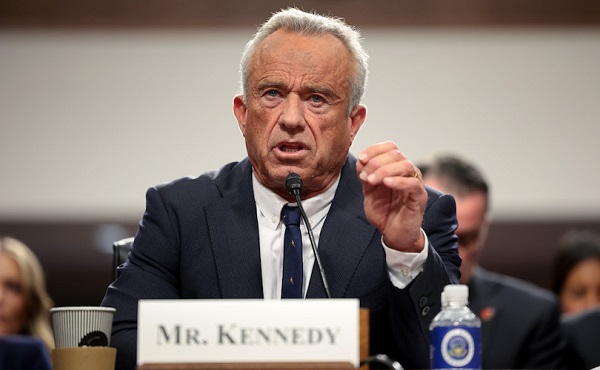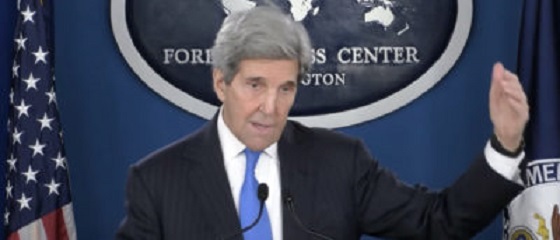By Emily Mangiaracina
Trump’s nominee for Secretary of Health and Human Services Robert F. Kennedy Jr. firmly defended his cautious stance on vaccines amid today’s grueling Senate confirmation hearing.
“Are you lying to Congress today when you say you are pro-vaccine, or did you lie on all those podcasts?” pressed Sen. Ron Wyden (D-OR), suggesting that Kennedy flatly contradicted during interviews his insistence during the hearing that he is not “anti-vaccine.”
Kennedy pointed out to Wyden that he was referring only to a “fragment” of the full statement that he made on the Lex Friedman podcast. “He asked me, ‘Are there any vaccines that are safe and effective?’ And I said to him, some of the live virus vaccines are. And I said, ‘There are no vaccines that are safe and effective — and I was going to continue, ‘for every person.’”
“Every medicine has people who are sensitive to them, including vaccines,” Kennedy continued.
Kennedy has previously clarified that he is not opposed to all vaccines, but has found that, in practice, many of them pose safety problems. He adopted this stance of extreme caution toward vaccines after the mothers of vaccine-injured children implored him to look into the research linking thimerosal to neurological injuries, including autism.
He went on to found Children’s Health Defense, an organization with the stated mission of “ending childhood health epidemics by eliminating toxic exposure,” largely through vaccines.
Kennedy has before stressed that “not one of the 72 vaccines mandated for children has ever been safety tested in pre-licensing, placebo-controlled trials,” something even Dr. Anthony Fauci recently admitted.
If Kennedy is confirmed by the Senate, he will oversee a broad range of health organizations, including the Centers for Disease Control and Prevention (CDC), the Food and Drug Administration (FDA), and the National Institutes of Health (NIH).
In a late October interview, Kennedy shared that Trump has tasked him with cleaning up the corruption in these agencies and ending their conflicts of interest.
In recent years, Kennedy has spoken much about the pattern of corruption and conflicts of interest that he witnessed firsthand during his many years as an environmental attorney. During Kennedy’s presidential run, he discussed how the “corporate capture” of regulatory agencies is the “biggest threat to American democracy.”
According to Kennedy, the problem is pronounced in health agencies. For example, the FDA “gets 50 percent of its budget from Big Pharma” and the NIH “collects royalties when (a) pharma company sells (its) product,” as he explained in an interview last year.
Kennedy and Children’s Health Defense are routinely dismissed as “anti-vax” for openly discussing the scientific evidence regarding the link between vaccines and chronic diseases, including autism, attention-deficit/hyperactivity disorder or ADHD, and other neuropsychiatric and autoimmune disorders, in some children.
Rather than investigating the science, mainstream media mostly insists these links have been “debunked,” without providing any evidence for their claim.
Kennedy has also called for the removal of fluoride from public drinking water, citing recent studies and a landmark federal court decision that show it interferes with children’s brain development – a concern that has even been flagged by some mainstream public health commentators.
His supporters hope these issues will now receive serious public attention that will lead to policy change.
Kennedy has faced vehement opposition from among establishment professionals, including 77 Nobel laureates who signed a letter urging the Senate to oppose Kennedy’s confirmation as head of HHS.
The New York Times described Kennedy as “a staunch critic of mainstream medicine” who “has been hostile to the scientists and agencies he would oversee.”
To many Americans, those are the perfect qualifications for the next head of HHS.
















